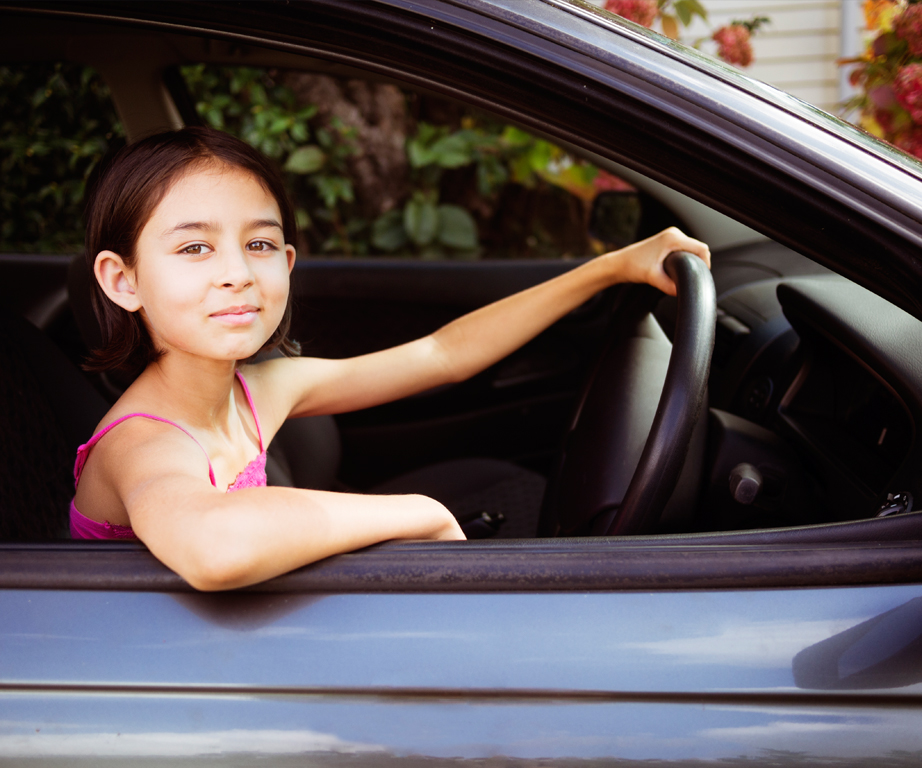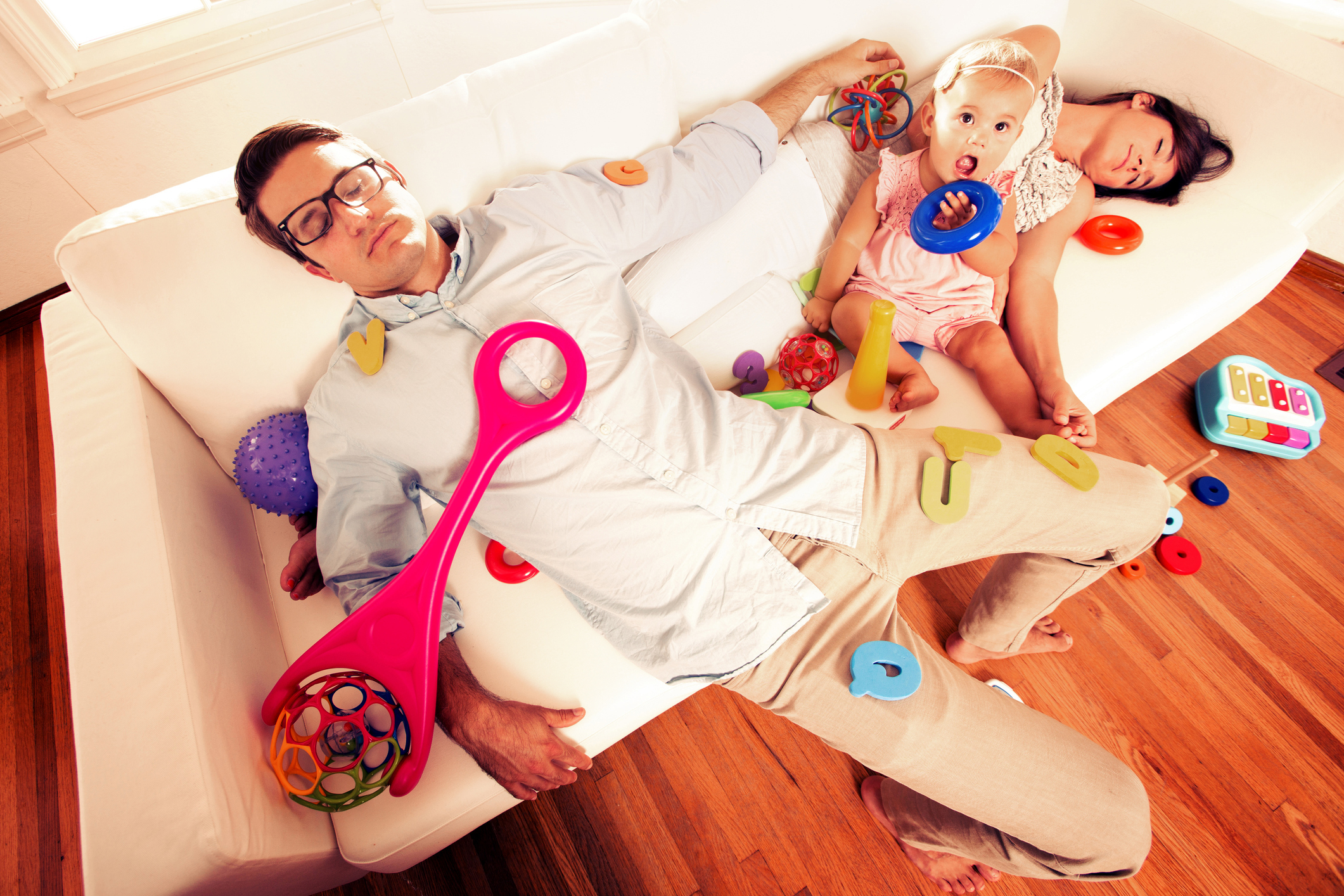Does tripping over a toy truck spark joy? Is your mind at rest surrounded by discarded playthings? Do you revel in to the feeling of spending a small fortune on parenting paraphernalia?
If our external environments can influence how we are feeling, then the mind of a parent is in danger of becoming a cluttered wasteland, strewn with the skeletons of high chairs, baby slings and disused toys.
Minimalism, as popularised by Japanese de-cluttering guru Marie Kondo, says we will all be happier if we have less stuff. Kondo’s bestselling 2011 book The Life-Changing Magic of Tidying Up was the forerunner to a movement that has now seeped into the mainstream. Blogs like becomingminimalist.com and The Minimalists (producers of a recent Netflix documentary) dish out advice about how to be a more mindful consumer, while New York apartment dwellers can now hire de-cluttering consultants trained in Kondo’s KonMari method.
“Keep only those things that speak to your heart,” Kondo writes in her book. “Then take the plunge and discard all the rest. By doing this, you can reset your life and embark on a new lifestyle.” If an object does not “spark joy,” it should be discarded.
In today’s consumer-driven lifestyle, a trend towards having less is something I can get on board with. But with a young son, the detritus of daily life can feel overwhelming.
Carrying devices, sleeping and feeding aids, clothes, shoes, toys, food; there is always something to buy or prepare or assemble or maim yourself on while embarking an innocent walk through your own living room.
Auckland mum and HR manager Deborah Mello used to enjoy returning from a hard day of work to the calm, restful Scandinavian decor of her home.
But after having son Benjamin, now two, she realised her clean environment was under threat.
“There were pretty much toys all through the living room, and I was getting anxious and frustrated because I couldn’t have the house the way I wanted.”
So she and husband Rafael Garcia created Benjamin his own playroom, based around Montessori principles. The founder of this movement, Maria Montessori, believed the home should be kept orderly and calm, so children could interact easily with the environment. Therefore, in Benjamin’s playroom, toys are kept on uncluttered shelves, easily within his reach.
“His bedroom was built in a similar way, so he learned independence fast. It was easy to do, didn’t cost a lot of money and meant I could have my house tidied up,” Mello says.
“If he wants to play in other areas of the house, he can bring one toy each time.”
In other areas of her life, she is decidedly un-minimalist.
“As a mum we always feel like they need everything, right? They need a lot of stuff.
“And I love shopping, so I do buy a lot for my son – mostly clothes and shoes.”
But she tries to give outgrown clothes and toys away, and will next year ask friends and family to donate toys to be given to charity for Benjamin’s birthday.
“He doesn’t need any more.”
Wellington mum-of-three Anna Bordignon wishes she lived a more minimalist life.
“Oh my gosh yes. I am actually going home shortly to clean up their toy cupboards because I am sick of them having so many toys.
“I’d love to say we lived a minimalist life at home, but we don’t.”
Bordignon is the founder of Munch Cupboard, an eco-friendly foodware company that began as a recipe-sharing blog.
“Inherent within this is the idea of having less, because everything we sell can get re-used and kept for a long period of time.”
Where she can, Bordignon will adopt minimalist principles – with a friend, she has pledged not to buy any clothes for six months in a stand against fast fashion.
“It’s just turning your mind to what you’re buying, and thinking about it. That’s not hard. People just think the clothes are made with a fairy wand, rather than by those who are paid next to nothing.”
For her, the most problematic work-around is marketing to kids.
“McDonald’s Happy Meals for example – it’s crap food, with a plastic toy that kids play with for five seconds.
“That marketing of kids products is so strong.”

Minimalism with kids is both possible and rewarding, Canadian writer Rachel Jonat – aka The Minimalist Mom – says. Janet began blogging and wrote The minimalist mom: How to simply parent your baby after being shocked at the amount of stuff she felt pressured to buy with her first child.
“I had two nappy bags before he was even born, I was researching strollers, baby carriers, and then I had a really colicky baby and all of that stuff just sat there,” Jonat tells. “I felt really disappointed and frustrated that I had spent all this money.”
Jonat, her husband and three children – aged two, four, and seven – live in a small Vancouver apartment. Since they became minimalists it feels spacious, Janet says.
“We do still have things in our home, but we have less of them. We do it to give ourselves more time and space, and to have money to do the activities we like.
“We make do with hand-me-downs, we try and limit gifts, and we are often returning things or giving them back.”
Does that offend people?
“I really like to focus on the intention of the gift, which is that they want to keep my kids happy and have a connection with them. We try and encourage gifts of time, or experiences.”
But, Jonat concedes, it is difficult.
“Stuff is everywhere, and once there are three more people in your house they just bring things in. They bring in artwork, it’s almost baffling how much free stuff they get at school – there is so much crap out there, and kids are a real target for it.”
Closer to home, professional organiser Janice Willis works on the coal face of decluttering. She sees parents at her workshops and in her work as director of Clutterbusters, her Auckland company.
Willis says in her experience, people only use about 20 per cent of the items in their homes.
“Everything else you’re just storing, and getting rid of it is very freeing.”
She tells parents to ditch excess toys, and rotate the remaining toys so that children only have so many to play with at once. Friends and family can be advised ahead of birthdays that they don’t need to bring presents.
“Children are happy with very little. I’m not a teacher, but I think it stifles creativity when they have too much stuff.
“You’ve got to be ruthless, and look at everything in your home as if it’s paying rent.”
This same philosophy should be adopted when buying new items.
“Are you buying something you already have? Be very critical about what you bring into your home.
“Trying to be more mindful can bring a huge amount of satisfaction. You need to say, does this item bring me real joy, having it? Do I actually need it? If not, put it down and walk away.”
Words: Michelle Duff
This first appeared on Noted.. Follow Noted on Twitter, Facebook, and Instagram.


